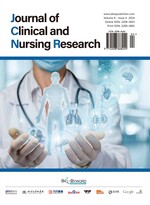Abstract
Objective: To compare the effects of extracorporeal membrane oxygenation (ECMO) and routine mechanical ventilation on mortality and the risk of associated adverse events in patients with severe viral pneumonia. Methods: PubMed, the Cochrane Library, Embase, Web of Science, and other databases were searched to collect case-control or cohort studies on prognoses associated with ECMO treatment for viral pneumonia. Search terms included extracorporeal membrane oxygenation, ECMO, viral pneumonia, COVID-19, influenza, MERS, and others. According to the PICOS principle, two evaluators independently screened the literature, extracted the data, cross-checked the data, and extracted the data again. Two researchers evaluated the risk of bias in the included studies according to the Newcastle-Ottawa Scale (NOS) and cross-checked the results. Meta-analysis was performed using RevMan 5.3 software. Results: Nine studies were included for analysis, encompassing a total of 4,330 patients, which were categorized into ECMO and CMV groups. There were no significant differences between the two groups in most baseline data; however, the ECMO group had a lower oxygenation index, and some studies reported higher SOFA scores in the ECMO group compared to the CMV group. There was no significant difference in in-hospital mortality between the two groups. The length of ICU stay, total hospital stay, and total mechanical ventilation time were longer in the ECMO group than in the CMV group. In terms of adverse events, there was no significant difference in the occurrence of kidney injury between the two groups. Bleeding events were reported in two studies, with more bleeding events occurring in the ECMO group. According to the subgroup analysis of different virus types, there were no statistical differences in the above aspects among patients with swine flu, novel coronavirus, and MERS. Conclusion: ECMO has a certain degree of positive significance in the treatment of severe viral pneumonia, but there is no significant difference in the treatment outcome of ECMO across different epidemic periods. The timing of ECMO treatment, patient management, and withdrawal evaluation still need further research.
References
Brittain-Long R, Nord S, Olofsson S, et al., 2008, Multiplex Real-Time PCR for Detection of Respiratory Tract Infections. J Clin Virol, 41(1): 53–56. https://doi.org/10.1016/j.jcv.2007.10.029
Bénézit F, Loubet P, Galtier F, et al., 2020, Non-Influenza Respiratory Viruses in Adult Patients Admitted with Influenza-Like Illness: A 3-Year Prospective Multicenter Study. Infection, 48(4): 489–495. https://doi.org/10.1007/s15010-019-01388-1
Roch A, Lepaul-Ercole R, Grisoli D, et al., 2010, Extracorporeal Membrane Oxygenation for Severe Influenza A (H1N1) Acute Respiratory Distress Syndrome: A Prospective Observational Comparative Study. Intensive Care Med, 36(11): 1899–1905. https://doi.org/10.1007/s00134-010-2021-3
Noah MA, Peek GJ, Finney SJ, et al., 2011, Referral to an Extracorporeal Membrane Oxygenation Center and Mortality Among Patients with Severe 2009 Influenza A (H1N1). JAMA, 306(15): 1659–1668. https://doi.org/10.1001/jama.2011.1471
Patroniti N, Zangrillo A, Pappalardo F, et al., 2011, The Italian ECMO Network Experience During the 2009 Influenza A (H1N1) Pandemic: Preparation for Severe Respiratory Emergency Outbreaks. Intensive Care Med, 37(9): 1447–1457. https://doi.org/10.1007/s00134-011-2301-6
Pham T, Combes A, Rozé H, et al., 2013, REVA Research Network: Extracorporeal Membrane Oxygenation for Pandemic Influenza A(H1N1)-Induced Acute Respiratory Distress Syndrome: A Cohort Study and Propensity-Matched Analysis. Am J Respir Crit Care Med, 187(3): 276–285. https://doi.org/10.1164/rccm.201205-0815OC
Henry BM, Lippi G, 2020, Poor Survival with Extracorporeal Membrane Oxygenation in Acute Respiratory Distress Syndrome (ARDS) Due to Coronavirus Disease 2019 (COVID-19): Pooled Analysis of Early Reports. J Crit Care, 58: 27–28. https://doi.org/10.1016/j.jcrc.2020.03.011
de Oliveira TF, de Oliveira Rocha CA, Santos AGGDS, et al., 2021, Extracorporeal Membrane Oxygenation in COVID-19 Treatment: A Systematic Literature Review. Braz J Cardiovasc Surg, 36(3): 388–396. https://doi.org/10.21470/1678-9741-2020-0397
Extracorporeal Life Support Organization (ELSO), 2022, Registry Dashboard of ECMO-Supported COVID-19 Patient Data, viewed February 3, 2022, https://www.elso.org/Registry/FullCOVID-19RegistryDashboard.aspx
Supady A, Combes A, Barbaro RP, et al., 2022, Respiratory Indications for ECMO: Focus on COVID-19. Intensive Care Med, 48(10): 1326–1337. https://doi.org/10.1007/s00134-022-06815-w
